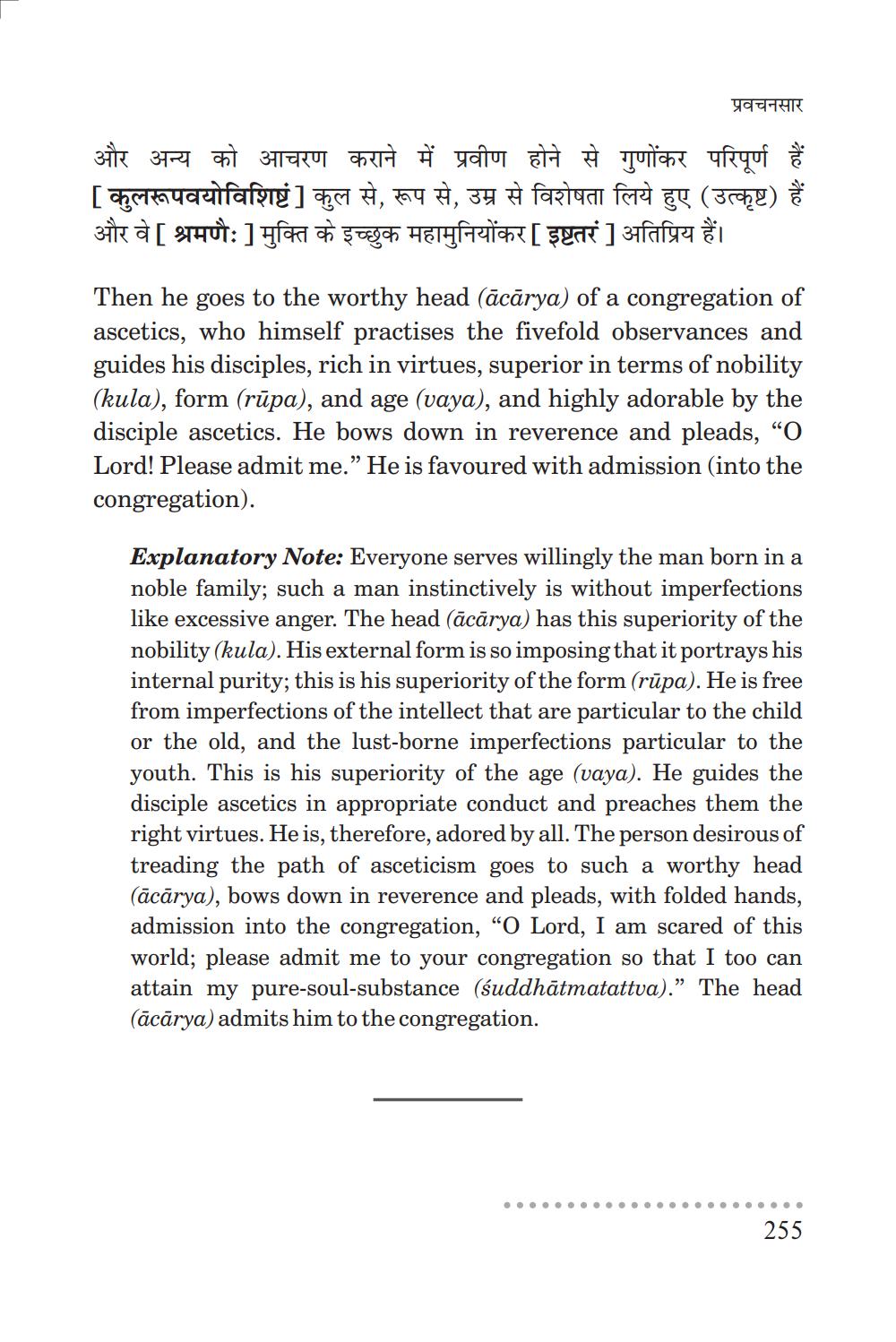________________
प्रवचनसार
और अन्य को आचरण कराने में प्रवीण होने से गुणोंकर परिपूर्ण हैं [कुलरूपवयोविशिष्टं] कुल से, रूप से, उम्र से विशेषता लिये हुए (उत्कृष्ट) हैं और वे [ श्रमणैः ] मुक्ति के इच्छुक महामुनियोंकर [ इष्टतरं] अतिप्रिय हैं।
Then he goes to the worthy head (ācārya) of a congregation of ascetics, who himself practises the fivefold observances and guides his disciples, rich in virtues, superior in terms of nobility (kula), form (rūpa), and age (vaya), and highly adorable by the disciple ascetics. He bows down in reverence and pleads, “O Lord! Please admit me.” He is favoured with admission (into the congregation).
Explanatory Note: Everyone serves willingly the man born in a noble family; such a man instinctively is without imperfections like excessive anger. The head (ācārya) has this superiority of the nobility (kula). His external form is so imposing that it portrays his internal purity; this is his superiority of the form (rūpa). He is free from imperfections of the intellect that are particular to the child or the old, and the lust-borne imperfections particular to the youth. This is his superiority of the age (vaya). He guides the disciple ascetics in appropriate conduct and preaches them the right virtues. He is, therefore, adored by all. The person desirous of treading the path of asceticism goes to such a worthy head (ācārya), bows down in reverence and pleads, with folded hands, admission into the congregation, “O Lord, I am scared of this world; please admit me to your congregation so that I too can attain my pure-soul-substance (śuddhātmatattva).” The head (ācārya) admits him to the congregation.
........................
255




